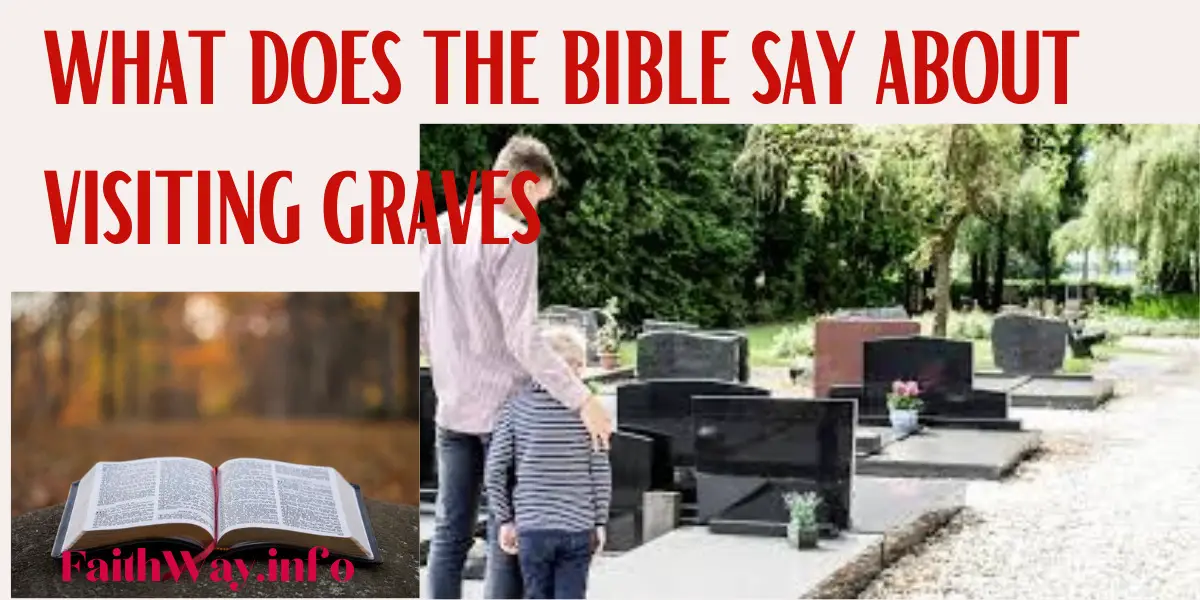Have you ever visited the grave of a loved one or cherished family member?
Have you ever felt sorrow for the departed, a twinge of regret for not having had the opportunity to tell them that you love them one last time?
For some of us, visiting a cemetery can be somewhat overwhelming, and we’re not entirely sure what the Bible has to say about it.
So, what does the Bible really tell us about visiting graves?
Well, the Bible states that cemeteries or gravesites are places of reverence, and that there should be no “gathering” of people there.
We are instructed to be in mourning for the dead, and to respect and honor their memory.
We are also taught to pay honor to those who died in battle or through heroic acts, but that we should not give in to vain and excessive show of sorrow.
The Bible also suggests that we should never violate or desecrate graves or do anything to harm them.
We are reminded of how fragile life is and that death is inevitable. As such, we should never be tempted to make fun of the dead, or to mock or belittle their memory.
Additionally, we are told not to disturb the peace of the departed by making too much noise or creating commotion at gravesites.
The Bible further states that if we are concerned for the fate of our loved ones, then we should pray for their souls and ask God for his grace, mercy and salvation while they are still alive.
In this way, we will do everything in our power to ensure that when our loved ones leave from time to eternity that they will forever be with the Lord.
When we go to a graveyard or cemetery, we are reminded that life is short and precious. We should strive to better our lives while we still have time, by following the Word of God and fulfilling His will. We should strive to lead lives that are honorable and righteous and bring glory to the Lord.
Visiting a cemetery can be very emotional and we may go in search of solace, peace, and understanding.
But the Bible tells us that our help should not come from a tombstone or monument. Rather, it should come from the Almighty.
It is He whom we must seek out, and He in whom we must place our hope, trust, and faith.
That said, we should remember that visiting graves is not a sign of weakness but an expression of humanity.
👉 Who was the first Person Cremated in Scriptures?
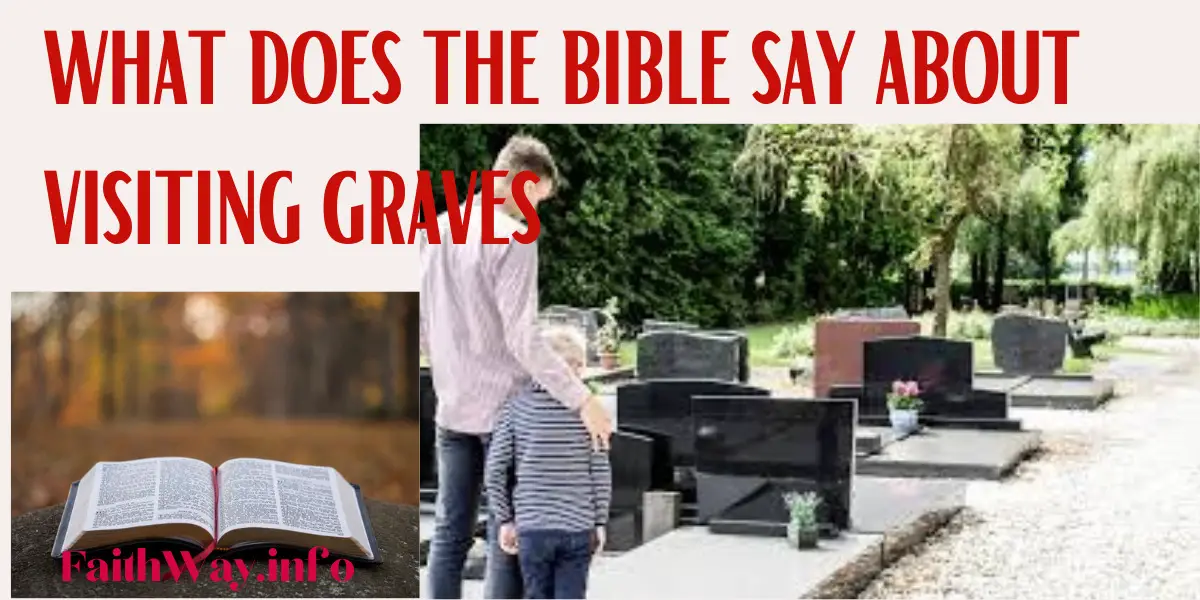
Five Good Reasons to Visit the Cemetery
While visiting a cemetery may not be a typical recreational activity, there are valid and meaningful reasons to visit these sacred places.
Here are five good reasons, supported by biblical references, to visit a cemetery:
Remembering and Honoring Loved Ones
Visiting the gravesite of a loved one provides an opportunity to remember and honor their life.
The Bible encourages us to remember and honor those who have passed away.
In the Old Testament, we see examples of people visiting the tombs of their ancestors, such as Abraham visiting the burial site of Sarah (Genesis 23:2-20) and Joseph visiting the tomb of his father Jacob (Genesis 50:12-13).
These visits help keep the memory and legacy of our loved ones alive.
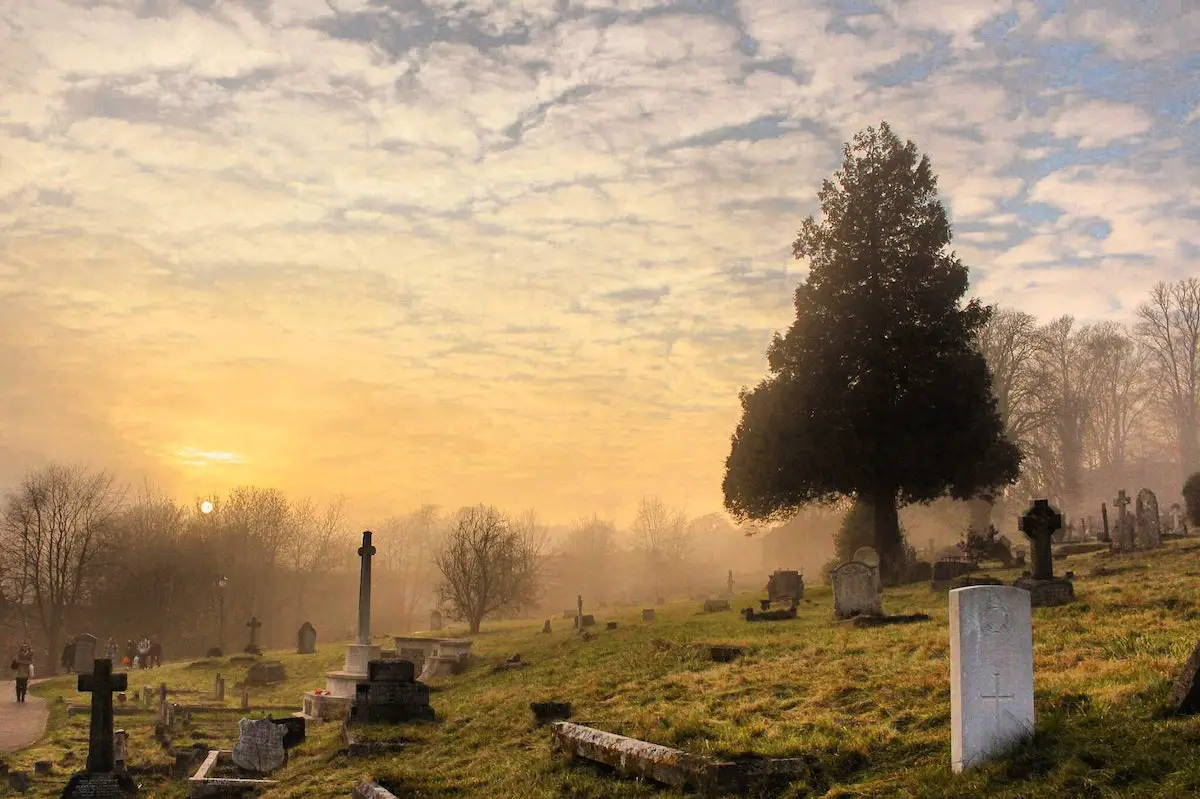
Finding Comfort and Solace
Cemeteries can serve as a place of solace and comfort for those who are grieving.
The Bible acknowledges the pain of losing someone and offers comfort. In the New Testament, Jesus Himself weeps at the death of His friend Lazarus (John 11:35) and offers comfort to those who mourn (Matthew 5:4).
Visiting a cemetery can provide a quiet and reflective space to find solace and seek God’s presence in times of grief.
Reflecting on the Fragility of Life
Cemeteries remind us of the brevity and fragility of human life. The Bible repeatedly emphasizes the transient nature of life and encourages us to reflect upon it. The book of Psalms declares, “LORD, make me to know my end and what is the measure of my days, that I may know how frail I am” (Psalm 39:4, ESV). Visiting a cemetery can prompt us to contemplate the fleeting nature of life and encourage us to live with greater purpose and gratitude.
Meditating on the Hope of Resurrection
Cemeteries can serve as a tangible reminder of the hope we have in the resurrection.
As Christians, we believe in the promise of eternal life through Jesus Christ.
The apostle Paul writes, “For as in Adam all die, so also in Christ shall all be made alive” (1 Corinthians 15:22).
By visiting a cemetery, we can meditate on this hope and anticipate the future resurrection of believers, finding comfort and encouragement in this assurance.
Reflecting on the Transitory Nature of Earthly Possessions
Cemeteries can serve as a reminder of the temporary nature of material possessions and the importance of prioritizing eternal treasures.
The Bible warns against placing excessive value on earthly possessions and encourages us to focus on the things of God.
Jesus teaches, “Do not lay up for yourselves treasures on earth, where moth and rust destroy and where thieves break in and steal, but lay up for yourselves treasures in heaven” (Matthew 6:19-20, ESV).
When visiting a cemetery, we are confronted with the reality that we cannot take our worldly possessions with us beyond the grave.
This can prompt us to evaluate our priorities and invest in things of lasting value.
👉 Unveiling the Mystery: What does the Bible say about Cremation Kjv

The Bible’s Teachings on Respect
The Bible teaches us that visiting gravesites is a sign of respect and we should be humble and contemplative as we do so.
We should take the time to remember our departed loved ones, their sacrifices and the gifts they gave to us while still alive.
This is the best way to show our appreciation for their life and what they have done for us. I am not telling you to make them a God or to worship them, but reflect on how God used them to bring him glory.
That said, the Bible also states that death should not be feared as it is only a passing from this world to the world of the spirit.
Though it is never easy to deal with the death of a loved one, the Bible reminds us that this is simply the beginning of a new journey and that we have nothing to fear as children of God who were born again by the spirit.
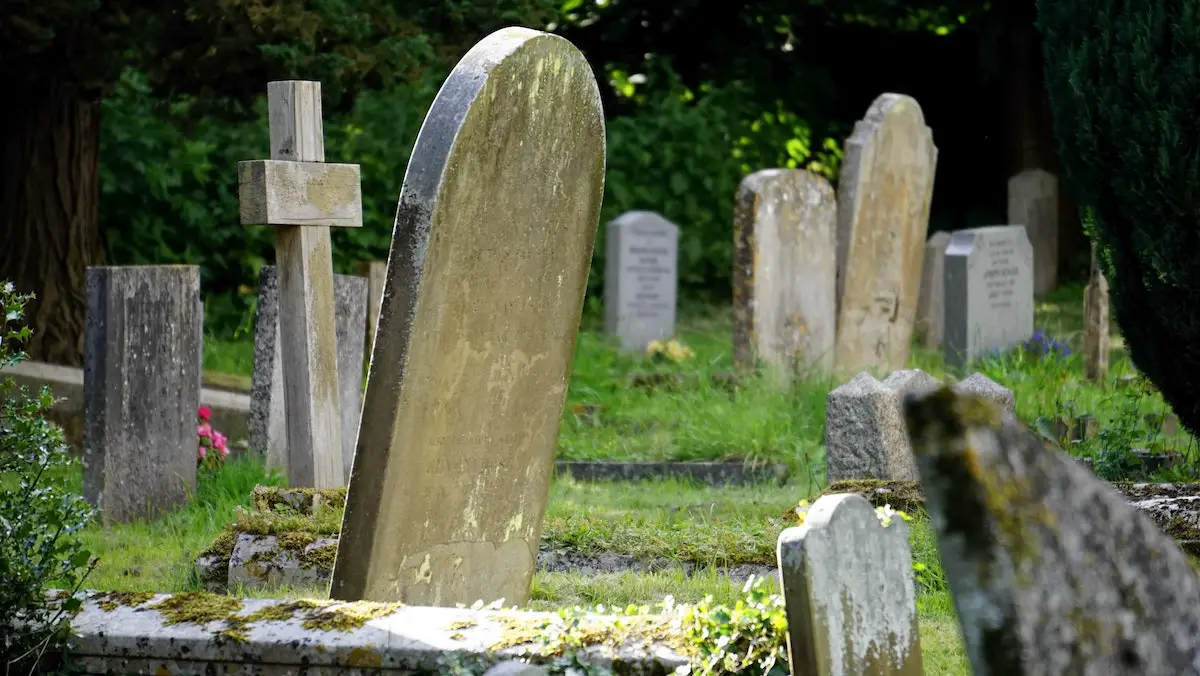
The Symbolism of Visiting Graves
Visiting a graveyard or cemetery is a reminder that life is short and that death is certain. We should not take our life for granted and instead, appreciate every moment we are given in life.
Seeing a cemetery serves as a warning that our time on this earth is limited and that the “here and now” is all we truly have.
We should use this time to love and to experience the good in life and strive to make a positive difference in this world.
We must never forget that we are only just passing through and that we will all meet our end one day.
The Bible states that we must not forget those that have passed before us because they who died in Christ are “cloud of witnesses“.
Though they may no longer be with us in body, their memories and legacy will live on forever in our hearts.
We must take comfort that the departed are now with the Lord, and that we too must labor for Lord while on earth.

What God Asks of Us
The Bible tells us that we should live our lives in a way that would make the people who’ve come before us to know God.
We should use this time to make other’s lives worthwhile by witnessing to them about Jesus Christ.
We must never allow the memories of our loved ones hinder us to going forward with God, use their lives as an reminder to pursue God because life at best the brief.

10 Bible Verses About Death
Here are ten Bible verses that address the topic of death:
- Ecclesiastes 12:7 (NIV):
“…and the dust returns to the ground it came from, and the spirit returns to God who gave it.” - Psalm 23:4 (NIV):
“Even though I walk through the darkest valley, I will fear no evil, for you are with me; your rod and your staff, they comfort me.” - John 11:25-26 (NIV):
“Jesus said to her, ‘I am the resurrection and the life. The one who believes in me will live, even though they die; and whoever lives by believing in me will never die. Do you believe this?’” - 1 Corinthians 15:55 (NIV):
“Where, O death, is your victory? Where, O death, is your sting?” - Romans 6:23 (NIV):
“For the wages of sin is death, but the gift of God is eternal life in Christ Jesus our Lord.” - Revelation 21:4 (NIV):
“He will wipe every tear from their eyes. There will be no more death or mourning or crying or pain, for the old order of things has passed away.” - 2 Corinthians 5:8 (NIV):
“We are confident, I say, and would prefer to be away from the body and at home with the Lord.” - 1 Thessalonians 4:13-14 (NIV):
“Brothers and sisters, we do not want you to be uninformed about those who sleep in death so that you do not grieve like the rest of mankind, who have no hope. For we believe that Jesus died and rose again, and so we believe that God will bring with Jesus those who have fallen asleep in him.” - Psalm 116:15 (NIV):
“Precious in the sight of the Lord is the death of his faithful servants.” - 1 Corinthians 15:20-22 (NIV):
“But Christ has indeed been raised from the dead, the firstfruits of those who have fallen asleep. For since death came through a man, the resurrection of the dead comes also through a man. For as in Adam all die, so in Christ all will be made alive.”
These verses offer a range of perspectives on death, including the hope of eternal life, the victory over death through Jesus Christ, and the comforting presence of God in times of grief and loss.

10 Bible Verses About Grave and Departed Souls
While the Bible does not specifically mention the practice of visiting graves or gravesides, there are verses that highlight the importance of honoring the departed and remembering those who have passed away.
Here are ten verses related to the commemoration of the deceased:
Psalm 116:15 (NIV):
“Precious in the sight of the Lord is the death of his faithful servants.”
Ecclesiastes 7:2 (NIV):
“It is better to go to a house of mourning than to go to a house of feasting, for death is the destiny of everyone; the living should take this to heart.”
Proverbs 10:7 (NIV):
“The name of the righteous is used in blessings, but the name of the wicked will rot.”
Proverbs 22:28 (NIV):
“Do not move an ancient boundary stone set up by your ancestors.”
2 Samuel 1:12 (NIV):
“They mourned and wept and fasted till evening for Saul and his son Jonathan, and for the army of the Lord and for the nation of Israel, because they had fallen by the sword.”
Matthew 27:61 (NIV):
“Mary Magdalene and the other Mary were sitting there opposite the tomb.”
John 11:32-33 (NIV):
“When Mary reached the place where Jesus was and saw him, she fell at his feet and said, ‘Lord, if you had been here, my brother would not have died.’ When Jesus saw her weeping, and the Jews who had come along with her also weeping, he was deeply moved in spirit and troubled.”
Acts 9:39 (NIV):
“Peter went with them, and when he arrived he was taken upstairs to the room. All the widows stood around him, crying and showing him the robes and other clothing that Dorcas had made while she was still with them.”
Acts 20:36-38 (NIV):
“When Paul had finished speaking, he knelt down with all of them and prayed. They all wept as they embraced him and kissed him. What grieved them most was his statement that they would never see his face again. Then they accompanied him to the ship.”
1 Thessalonians 4:13-14 (NIV):
“Brothers and sisters, we do not want you to be uninformed about those who sleep in death so that you do not grieve like the rest of mankind, who have no hope. For we believe that Jesus died and rose again, and so we believe that God will bring with Jesus those who have fallen asleep in him.”
While these verses don’t specifically mention visiting graves, they demonstrate the significance of mourning, remembering, and honoring those who have passed away.
They emphasize the value of reflecting on the lives of the departed and finding comfort in God’s presence during times of loss.
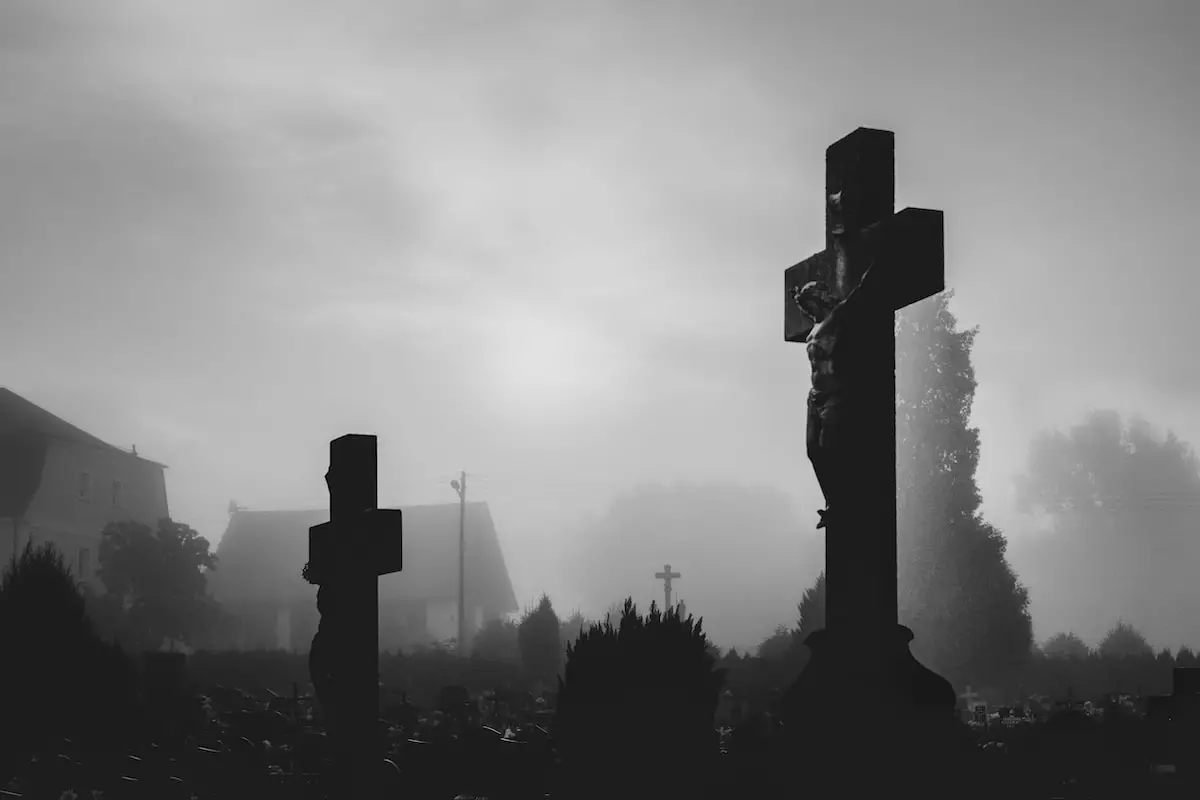
The Sacredness of Visiting Graves
Visiting graveyards brings us face to face with the idea of life and the mortality of man.
This is why we should approach cemeteries with reverence.
The Sacredness of Honoring the Departed
In the Christian faith, visiting graves and honoring the departed holds profound significance. It is a practice rooted in biblical principles that highlight the sacredness of remembering and respecting those who have passed away.
By exploring relevant passages and teachings from the Bible, we can gain a deeper understanding of the importance of visiting graves and how it aligns with Christian beliefs.
- Acknowledging the Value of Life:
The Bible teaches us that human life is precious and worthy of reverence. Each individual is created in the image of God (Genesis 1:27) and possesses inherent worth. Visiting graves reminds us of the lives that were lived, the impact they had, and the value God places on every human soul. - Remembering God’s Faithfulness:
Throughout Scripture, we find numerous examples of God’s faithfulness to His people. By visiting graves, we can reflect on the faithfulness of God in the lives of those who have gone before us. Just as God was faithful to them, He remains faithful to us in our journey through life (Psalm 36:5; Hebrews 13:8). - Commemorating the Legacy of the Faithful:
Visiting graves provides an opportunity to honor and remember the legacy of those who faithfully followed God. The Bible encourages us to consider the lives of believers who have gone before us, imitating their faith (Hebrews 13:7). By visiting their resting places, we acknowledge their impact and are inspired to continue their godly example. - Embracing the Reality of Eternity:
The Bible reminds us of the brevity of our earthly lives (James 4:14) and points us toward the hope of eternity. Visiting graves serves as a reminder that death is not the end, but a transition to a greater existence with God. It helps us focus on the eternal perspective and prompts us to live our lives with purpose and a desire for a deeper relationship with our Creator.
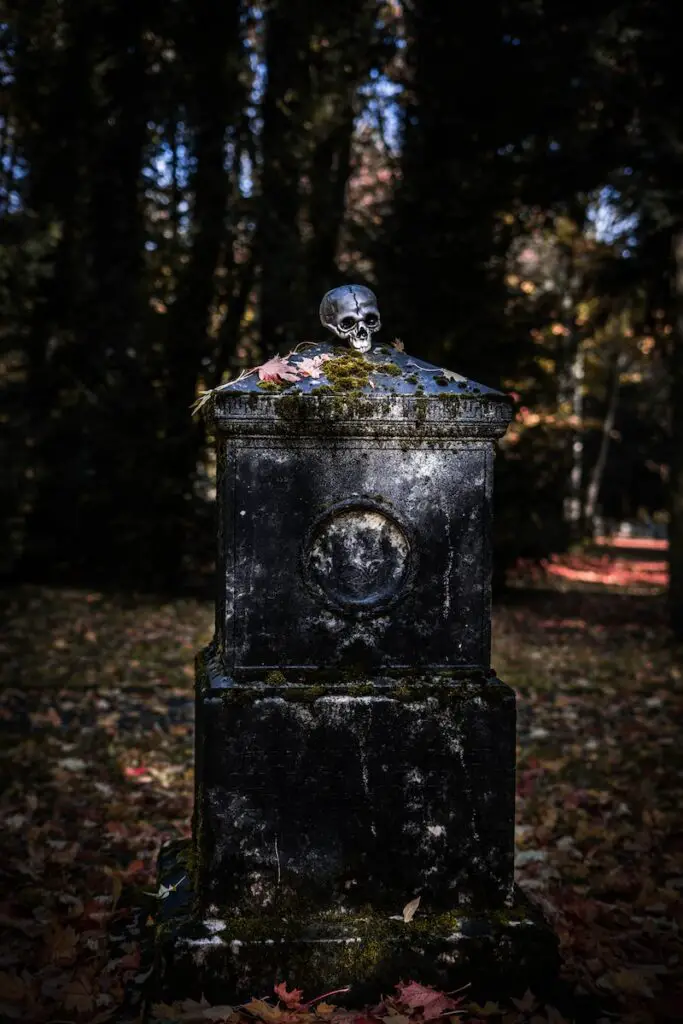
Final Thoughts
Visiting graves is a deeply meaningful practice that aligns with Christian beliefs.
By acknowledging the value of life, remembering God’s faithfulness, commemorating the legacy of the faithful, seeking comfort and healing, and embracing the reality of eternity, we honor the departed in a way that reflects our faith.
Through this sacred act, we find solace, gain wisdom, and draw closer to God, knowing that one day we too will be remembered and our legacy of faith will inspire generations to come

Faithway.info, your online sanctuary for deepening your spiritual journey and mastering the teachings of the Bible. At Faithway.info, we are passionate about making the wisdom of the Bible accessible to everyone, fostering a community dedicated to growth, understanding, and support.
